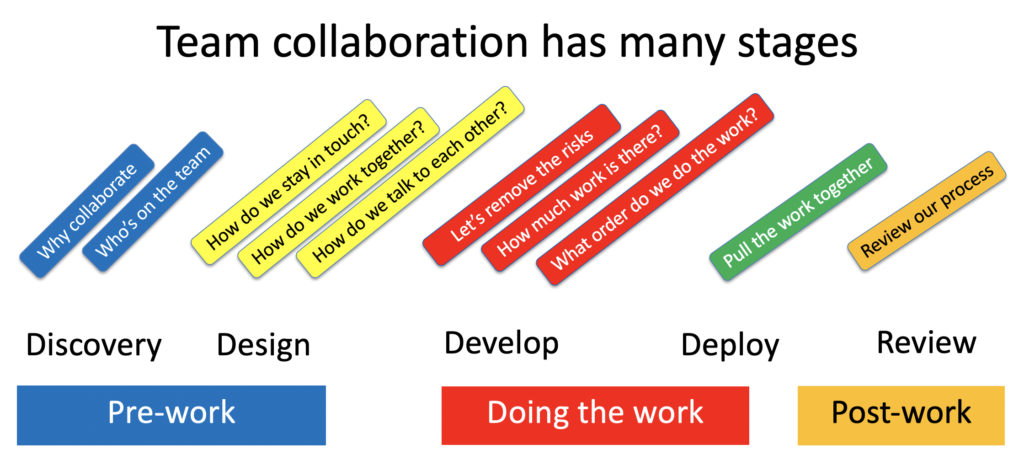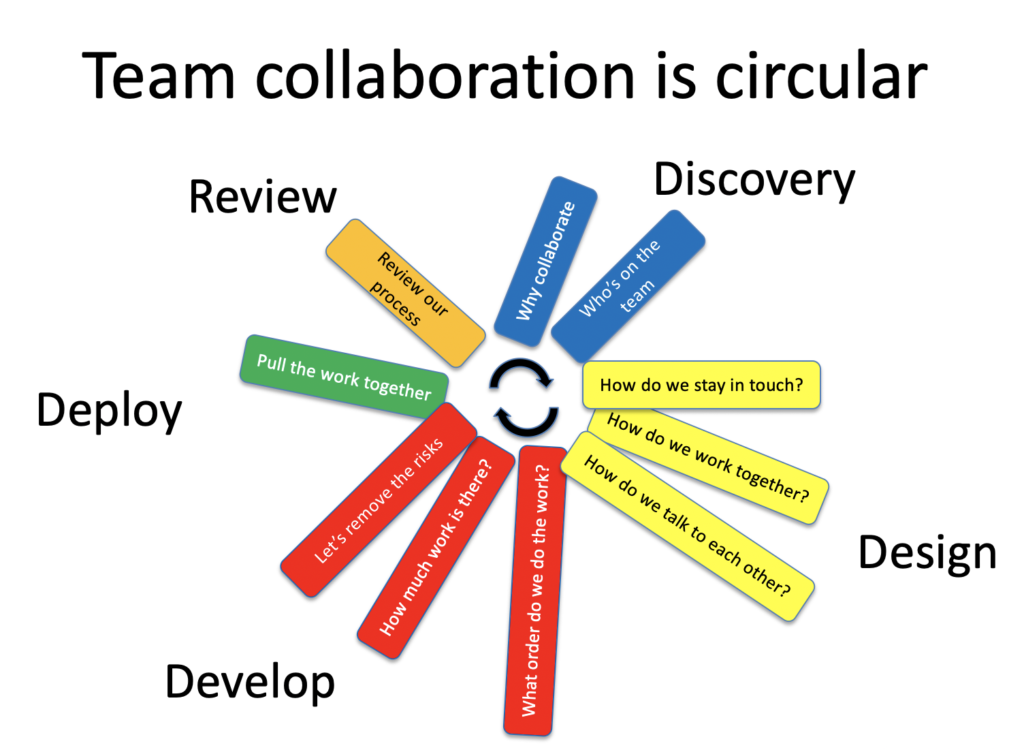Elsewhere I’ve described the ten phases of team collaboration in a range of different aspects, right up to the full unloading of 101+ ideas to help you improve your collaboration. Lately I’ve realised that these fit into the 4D process of design, as I’ve outlined before, along with an extra phase for ‘review’.
Those four stages, Discovery, Design, Develop and Deploy, plus Review to give us five, show even more clearly that team collaboration applies as much to what you do before you start work together, as it does to your work.
Most of our energy when we start a collaboration focuses on the ‘doing the work’ stages. We often leap into that and only later consider the other six phases under ‘pre-work’ and ‘post-work’. The result is that we need to step back from our work when we encounter problems, and we might’ve also set up our working collaboration without taking into account all of our possible options to make the most of our opportunities. Happily, we can review and fix these issues.
A better approach would be to address each of our phases before we start our work. In a minimal approach we can use a quick round of questions for the team members, so that everyone knows why they are taking part, and the team has determined how to stay in touch and do the work together in a suitable collaborative manner, while also knowing how to handle disagreements.
As the process is repeated as part of our incremental and iterative steps, we can always pick up changes as we re-enter that phase of the work. This is how many see the 4D process already, so we should also do the same.
Seen from this perspective we notice that while we might not always review our reasons for collaboration, and who’s on the team, we do see that we do have that option. We just need to remember, that we can exercise that option. More importantly, we also see that we can review ‘how we work together, and explore changes to our team agreement as required.
While most of our work in timeboxes will see us going through the develop and deploy, plus review stages, we should also be aware that the whole process of collaboration can be seen as an iterative circle or cycle, and let that perspective help us work better as a team. If we missed something this time around, then we can pick it up next time.



